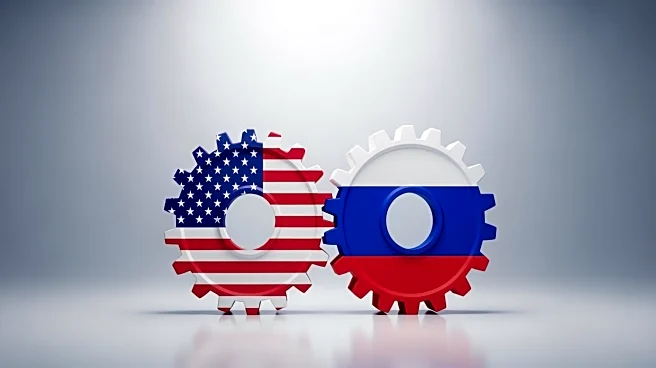What's Happening?
The United States is intensifying its diplomatic efforts to persuade Hungary to reduce its dependency on Russian oil imports. Matthew Whitaker, the U.S. Ambassador to NATO, emphasized in a Fox News interview
that Hungary has not yet taken active steps to decrease its reliance on Russian energy. The U.S. plans to collaborate with Hungary and neighboring countries like Croatia to facilitate this transition. This move comes amid ongoing tensions between Hungary and other EU member states regarding energy policies, particularly Hungary's reluctance to align with EU plans to eliminate Russian gas by 2027. Recently, diplomatic relations were strained further when the U.S. canceled a planned meeting between President Trump and President Putin in Budapest and imposed sanctions on major Russian oil companies, Rosneft and Lukoil.
Why It's Important?
The U.S. pressure on Hungary to cut Russian oil imports is significant in the broader context of international efforts to isolate Russia economically due to its actions in Ukraine. By reducing Hungary's reliance on Russian energy, the U.S. aims to weaken Russia's economic influence in Europe and diminish its revenue from oil exports. This move could have substantial implications for Hungary's energy strategy and its diplomatic relations within the EU. If successful, it may encourage other countries with similar dependencies to reconsider their energy sources, potentially leading to a shift in the European energy landscape. The sanctions on Russian oil firms further underscore the U.S.'s commitment to using economic measures to influence geopolitical outcomes.
What's Next?
Hungary faces the challenge of developing a comprehensive plan to transition away from Russian oil, which may involve seeking alternative energy sources and strengthening ties with neighboring countries for energy cooperation. The U.S. is expected to continue its diplomatic engagement with Hungary to ensure compliance with its expectations. Additionally, Hungary's Prime Minister Viktor Orban may need to navigate domestic and international pressures as he balances national energy needs with geopolitical considerations. The situation could lead to further diplomatic negotiations and adjustments in Hungary's energy policies.









